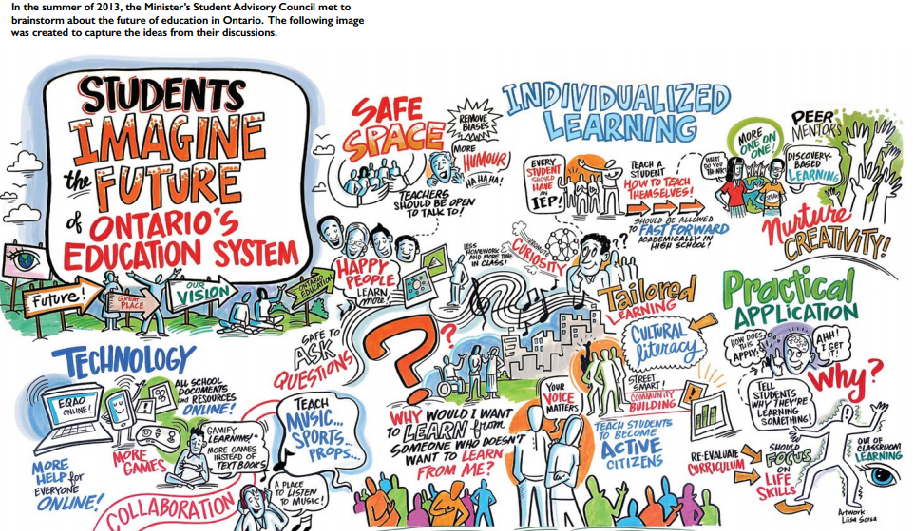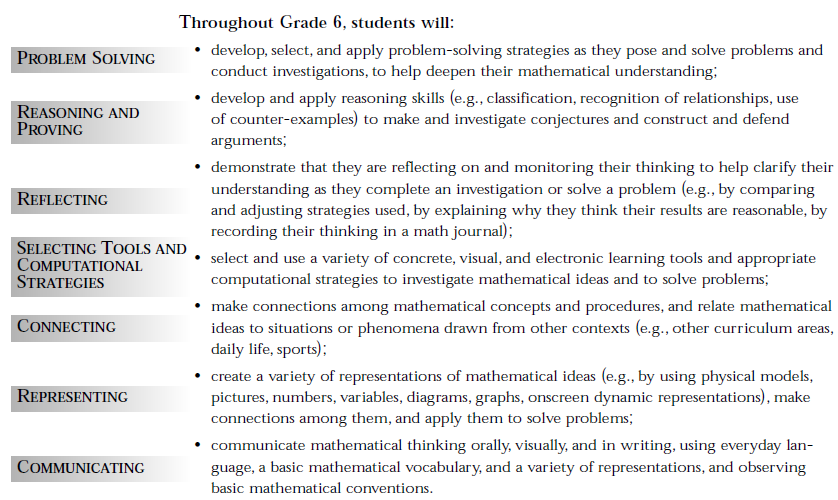Today, I digress from digital leadership to something else--the reflective practitioner. Through my role as a Program Resource Teacher, I find that I'm very privileged to be receiving what a close colleague of mine describes as, "a day of professional learning, everyday." Last week, as I was rummaging through a few folders on my laptop, I stumbled upon a personal reflection about the teaching of mathematics that I had penned about four years ago (to put this into perspective, I am in my 13th year as a professional educator) to a not-yet-imagined professional learning community/network. This reflection sent me into a period of reflection--an important aspect of teacher professional learning--and I thought that I would share this with our learning community.
Without any précis or foreshadowing, here it is:
The look of satisfaction.
“A-ha!”
Each of these responses can be the result of solving a challenging math problem. As far as life goes, it’s riddled with challenges. What better challenge than to solve a problem that is outside of the realm of every subject?
Granted…I have some ‘math-ability’ and an intrinsic appreciation for the subject, but even with these qualities, would I be in this role today? Likely not; I had some inspiring teachers who believed in my abilities—that I had something more to offer. They challenged me to think beyond any current circumstance to solve problems.
I’ve been teaching math at ND for nearly 9 years and have loved every moment of the ride. To be practising a hobby during the regular workday…what could be better?
Many students have come and gone. Some have expressed that they’re not the ‘math type’. That’s okay, but I would continue to encourage them not to shut the door on math. Remember, math is a human endeavour—it’s been around forever, as much of our history has been created through this subject, and it continues to be something that both young and old can discover.
Go through the discovery process. Be challenged. Be enlightened. Be more with mathematics, as the world will challenge you to be math literate.
Yours Sincerely,
Mr. C. Stewart
The look of satisfaction.
“A-ha!”
("I like learning math this way.")
Each of these responses can be the result of solving a challenging math problem. [And when problems (Ontario Ministry of Education (OME) monograph) are open, accessible and authentic, students are given time to work together, are encouraged to communicate their thinking, and collaboration occurs to construct meaning (OME monograph) of the mathematics at hand, students begin to enjoy mathematics, see its relevance, and improve their achievement. For example, take Dan Meyer's 3-Act Math Tasks: Who wouldn't want to engage in learning mathematics that's rooted in such problems? Check out what Dan has shared, here, via a Google Spreadsheet]. As far as life goes, it’s riddled with challenges. What better challenge than to solve a problem that is outside of the realm of every subject? [By persisting with challenges, students stand a much better chance at developing 21C (infographic below) skills that will allow them to find personal satisfaction through their contributions to others.]
Ontario Students Achieving Excellence: Video
Many students have come and gone. Some have expressed that they’re not the ‘math type’. That’s okay (for the moment), but I would continue to encourage them not to shut the door on math. [Everyone has the potential to achieve at the highest levels in mathematics (Dr. Jo Boaler, below).] Remember, math is a human endeavour (, binding us together)—it’s been around forever, as much of our history has been created (and understood) through this subject, and it continues to be something that both young and old can discover [, enjoy and share with others. For example, take the TED Talk on The Mathematics of History: Jean-Baptiste Michel (below) delivers a captivating account of how Mathematics is helping us to understand the evolution of humanity through its history--language as one marker of this process.]
Mr. C. Stewart
Please feel free to respond to this post with your reflections, comments and/or questions. Based on the number and depth of additions I made to my 'old' reflection, I know that I have learned ... that I have changed my understanding of what constitutes good, formative assessment, student achievement, the conditions necessary for the effective teaching of mathematics, and that collaboration will be key for student-teacher relationships moving forward.
Sincerely Yours,
Chris Stewart, OCT
Program Resource Teacher-Mathematics
Upper Canada DSB
Brockville, ON
Bergmann, J., & Sams, A. (2014). Flipped learning: Gateway to student engagement (1st ed., pp. 21-38). Eugene: ISTE.


 RSS Feed
RSS Feed


